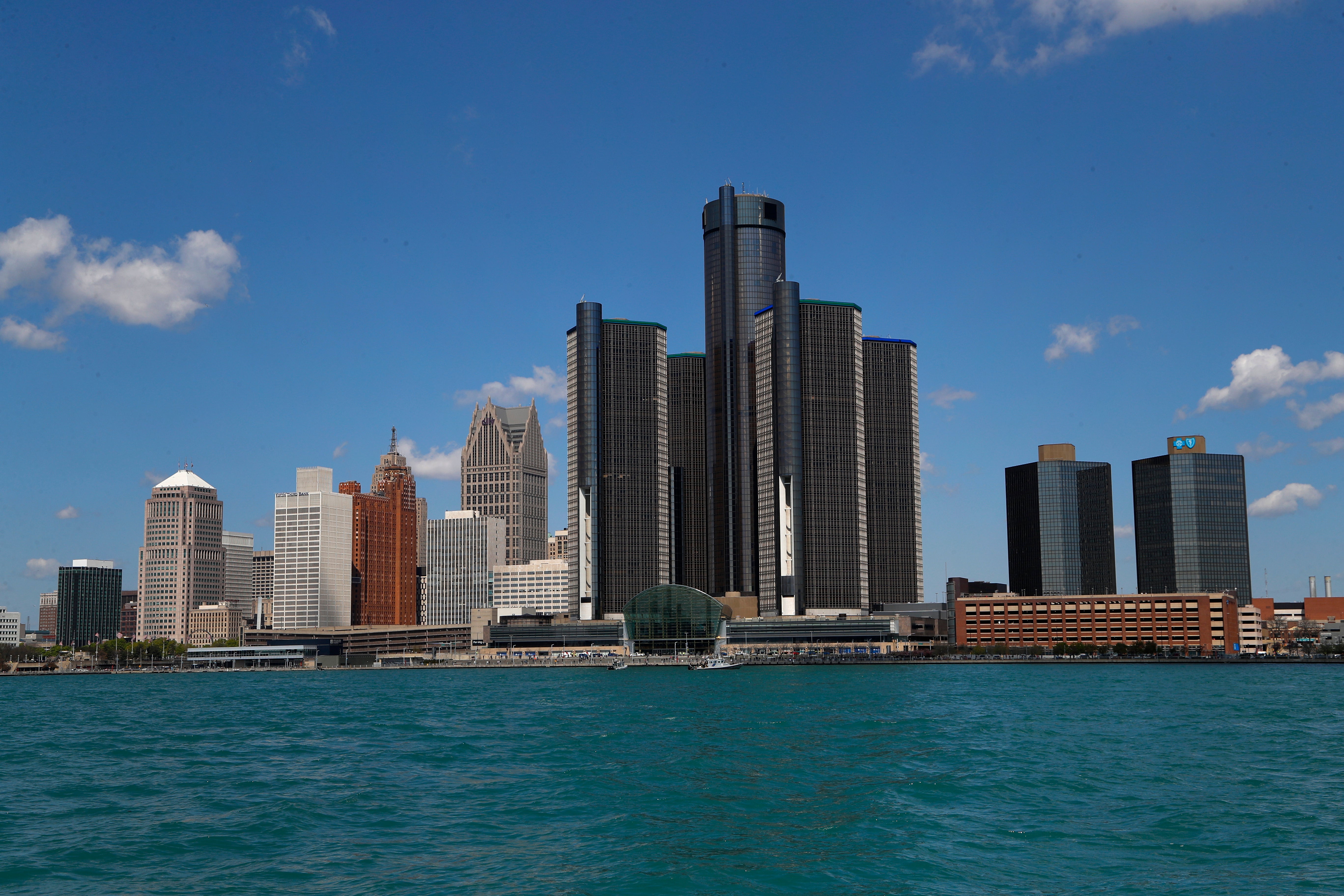Report: 2020 census may have missed thousands in Detroit
Researchers hired by the city say the Census Bureau undercounted more than 8% of the occupied homes in 10 Detroit neighborhoods during the 2020 census

Your support helps us to tell the story
From reproductive rights to climate change to Big Tech, The Independent is on the ground when the story is developing. Whether it's investigating the financials of Elon Musk's pro-Trump PAC or producing our latest documentary, 'The A Word', which shines a light on the American women fighting for reproductive rights, we know how important it is to parse out the facts from the messaging.
At such a critical moment in US history, we need reporters on the ground. Your donation allows us to keep sending journalists to speak to both sides of the story.
The Independent is trusted by Americans across the entire political spectrum. And unlike many other quality news outlets, we choose not to lock Americans out of our reporting and analysis with paywalls. We believe quality journalism should be available to everyone, paid for by those who can afford it.
Your support makes all the difference.The Census Bureau undercounted more than 8% of the occupied homes in 10 Detroit neighborhoods during the 2020 census, an oversight rate that if applied citywide could mean that tens of thousands of Motor City residents were missed, researchers hired by the city said Thursday.
Detroit will file a lawsuit over the census results if they aren't changed during the Census Bureau's appeals process which starts next year, said Detroit Mayor Mike Duggan
“This was malpractice by the Census Bureau," he said during a news conference.
The statistical agency said Thursday it was working on a response to the city’s allegations.
The 2020 census data showed Detroit with 639,000 residents, while estimates from 2019 put the city's population at 670,000 residents. A drop of 31,000 residents would be “really implausible," said Jeffrey Morenoff, a University of Michigan sociology professor who helped conduct a study on the undercount for the city.
“That was an off-the-trend line drop that was highly anomalous," Morenoff said.
Researchers hired by the city conducted their own count of housing units in 10 Detroit neighborhoods, officially called census block groups, which can have anywhere from 600 to 3,000 people. In five of the neighborhoods, the researchers sent out canvassers to observe if housing units were occupied or vacant, and they compared the results with occupancy data from the U.S. Postal Service.
In the other five neighborhoods, just the postal service data and American Community Survey data were used for the analysis.
The analysis estimated that 964 residents in the 10 neighborhoods were missed. If applied citywide, that could mean tens of thousands of people were undercounted, according to the report. Duggan wants the Census to add back the thousands who were potentially missed.
Even before the numbers came in, Duggan said he was worried since Detroit had one of the lowest self-response rates of any major city, and this was the first census in which a majority of respondents were encouraged to answer the census questions online.
The Democratic mayor blamed the shortfall on efforts by the Trump administration to end the head count early last fall, which he says put pressure on census takers to skip following protocol that required knocking on the doors of unresponsive households six times before resorting to interviewing neighbors or others for information. The Census Bureau also didn't send enough census takers to Detroit, focusing instead on the suburbs and more rural areas, he said.
Detroit is no stranger to census lawsuits. Then-Mayor Coleman Young sued after the 1990 census, and the numbers were later adjusted.
“It has been difficult for the Census Bureau to conduct an accurate count in Detroit for many decades,” said Terri Ann Lowenthal, a former congressional staffer who specializes in census issues.
The 2020 census was challenged last year by the pandemic, natural disasters, delays and attempts at political interference by the Trump administration.
Any challenges to the once-a-decade census numbers would have no impact on the figures used to determine how many congressional seats each state gets and the data used to redraw congressional and legislative districts. But they could affect annual population estimates over the next decade that are used to help determine the allocation of $1.5 trillion in federal spending each year.
The Census Bureau this week sent out information to state, local and tribal leaders with information on how they can start the process for challenging census numbers. The window for challenging population and housing counts goes from January through June 2023. A separate program allows for challenges on population estimates that are derived from census figures.
Meanwhile, measuring the accuracy of the 2020 census is going to be more difficult than usual.
The Census Bureau said Thursday that it would be unable to provide undercount and overcount rates below the state level because the sample size was too small in a survey used to measure accuracy. In the previous census in 2010, they were provided for counties and places.
___
Follow Mike Schneider on Twitter at https://twitter.com/MikeSchneiderAP